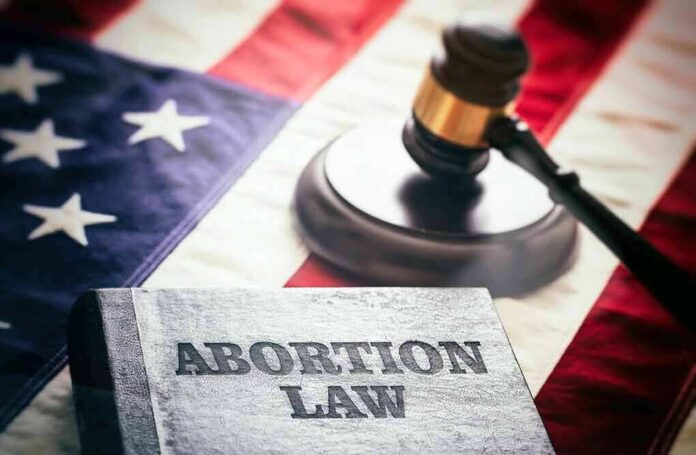
Oregon’s pro-life organization takes a stand against state-mandated abortion funding, bringing their religious freedom battle to the Ninth Circuit Court as the government forces them to violate their core beliefs.
Key Takeaways
- Oregon Right to Life (ORTL) is challenging a state law that mandates abortion coverage in employee health insurance plans, arguing it violates their religious freedom.
- The Reproductive Health Equity Act provides exemptions for some religious employers but not for ORTL, creating what they call unconstitutional discrimination.
- ORTL’s case is strengthened by a recent Supreme Court decision from June 2025 that declared similar selective exemption policies unconstitutional.
- Attorney James Bopp Jr. argues the government cannot legally force organizations to violate sincere religious beliefs while offering exemptions to others.
- The outcome could set a significant precedent for religious liberty protections against government mandates that conflict with moral convictions.
Religious Freedom at Stake in Oregon Abortion Coverage Battle
Oregon Right to Life (ORTL) has escalated its fight against the state’s abortion coverage mandate to the Ninth Circuit Court of Appeals, arguing that the government is unconstitutionally forcing them to violate their deeply held religious beliefs. At the heart of the case is Oregon’s Reproductive Health Equity Act, which requires employers to provide insurance coverage for abortion and contraception. While the law includes exemptions for certain religious employers, ORTL contends that the selective nature of these exemptions creates an unconstitutional system that discriminates against their organization specifically because of their pro-life religious convictions.
The case challenges a previous dismissal by U.S. District Judge Michael McShane, who ruled against ORTL because the organization does not explicitly require religious affiliation for its members or staff. However, ORTL argues this narrow interpretation of what constitutes a religious organization violates First Amendment protections. Their legal team, led by prominent conservative attorney James Bopp Jr., maintains that the state cannot decide which religious organizations qualify for exemptions based on arbitrary criteria while forcing others to fund practices that directly contradict their moral beliefs.
Legal Arguments and Constitutional Questions
ORTL’s appeal draws significant strength from the recent Supreme Court ruling in Catholic Charities Bureau, Inc. v. Wisconsin Labor & Industry Review Commission, which affirmed broader protections for religious organizations. The case has become a crucial test of whether governments can compel religious organizations to participate in funding abortion services while selectively exempting others. The legal team argues that Oregon’s law creates an unconstitutional religious gerrymander that specifically targets organizations like ORTL while protecting others that meet the state’s preferred definition of religious institutions.
“There are numerous assertions in the record by Oregon Right to Life that their belief in the sanctity of individual human life and opposition to abortion is based upon religious tenets,” said James Bopp during oral arguments before the Ninth Circuit panel.
Attorneys for the state defended the law’s exemption structure, arguing that it is neutral and generally applicable. Carson Whitehead, representing Oregon, claimed that “Oregon Right to Life argues for an extraordinarily broad construction of the free exercise clause,” suggesting that ORTL’s interpretation would excessively limit the state’s regulatory authority. The state maintains that the religious employer exemption has specific criteria that ORTL simply does not meet, and that this does not constitute religious discrimination.
Constitutional Principles and Religious Liberty
Bopp has forcefully argued that the trial court’s decision undermines fundamental constitutional principles by allowing the government to favor certain religious organizations over others. The appeal contends that courts have no authority to evaluate whether an organization’s beliefs are sufficiently religious to warrant protection. This position reflects a broader conservative concern about government overreach into religious matters and attempts to define what constitutes legitimate religious practice or belief.
“This case is saturated with examples of the exact things the Constitution prohibits. The First Amendment does not permit the government to favor secular organizations over religious ones. It does not permit the government to favor only the religious organizations of which it approves. It does not permit the government to draft laws in a way that achieves a religious gerrymander to ensure disfavored religious organizations cannot receive certain benefits. And it does not permit courts to second-guess whether an organization’s religious beliefs are, in fact, religious. The Ninth Circuit panel’s decision should be easy since the trial court disregarded the principles in so many ways,” said Attorney Bopp.
ORTL’s Confidence in Constitutional Protection
ORTL’s executive director, Lois Anderson, has expressed strong conviction that the organization’s constitutional rights will ultimately be recognized. The case represents a critical battle in the ongoing tension between progressive state policies promoting abortion access and the religious liberty of organizations with moral objections to abortion. For many conservatives, the case exemplifies government overreach that forces individuals and organizations to participate in practices they find morally reprehensible while selectively exempting others based on arbitrary criteria.
“The attempt by the state to force Oregon Right to Life to finance abortion—the precise human rights violation we are dedicated to opposing—is blatantly unconstitutional and unjust. Oregon Right to Life is exempt from the Mandate and well within our First Amendment rights to follow our sincerely held beliefs. We are confident that—with the help of our excellent legal team—our Constitutional rights will be recognized and upheld by the Ninth Circuit panel,” said Lois Anderson, Executive Director of Oregon Right to Life.
The Ninth Circuit panel has not indicated when it will issue a ruling on the case, but the decision will likely have far-reaching implications for religious liberty protections across the country. As President Trump’s judicial appointments continue to reshape federal courts, many conservative legal observers see increasing hope that religious freedom protections will be strengthened against government mandates that force participation in morally objectionable practices.












